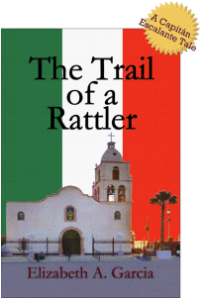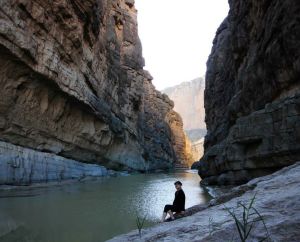
This week’s Alpine Avalanche column is dedicated to Manuel Galindo ( April 28, 1973-July 2, 2010)
Finding Mecca
When I first took my love to have and to hold, I didn’t realize I’d also taken his family. We married in June of 1983, and before the summer ended, my new husband said, “I want you to put Manuel into Terlingua School.” He referred to his ten-year-old nephew, a little boy I didn’t like much who lived in Paso Lajitas, Mexico with his grandparents. Paso Lajitas is directly across the Rio Grande from where we lived in Lajitas, Texas.
“But the school teaches classes in English, not Spanish,” I blurted because the little ragamuffin didn’t speak English.
“That’s the point.”
“Oh…”
I agreed to enroll the little scalawag because I knew it’d be good for him to know English. Then I said, “He’ll have to be responsible for getting himself up, fed, dressed, and across the river by seven in the morning. Do you think he can do that?”
“He can if you help him.”
“But he lives across the—” Oh, crap. “You want him to live here, with us?”
Yep, that was the bottom line. Great.
I didn’t dislike children, but it was difficult to relate to them because I didn’t have any or want any. If they were someone else’s, cool. But if this grinning, always-dirty little boy came to live with me, that would mean having a child, wouldn’t it?
One day when the kid waded across the river just to say, “Hola, Tia,” I asked him if he wanted to go to Alpine. I figured if he was going to live under my roof and go to school, he needed shoes and clothes, and he was growing on me… just a little.
Of course he wanted to go! He was excited and echoed “Alpine” with wonder, as if we were discussing a trip to Mecca instead of an itty bitty town in the middle of nowhere.
This was in the days before the 24/7 Border Patrol checkpoint between Terlingua and Alpine. It was there but it was rarely open. We sailed past it and I felt no guilt. I was transporting one small, innocent boy, not a ton of drugs or vicious members of a cartel. And I wasn’t going to leave him or find him a job; I was bringing him back.
My first big lesson: everything is bigger, brighter, and more astounding through the eyes of a child. The mountains became taller, more rugged and stark, and the long-distance vistas far more impressive because of a little guy who could hardly sit still. He leaned forward, alert, and exclaimed over everything: boulders, plants and trees, mesas, naked peaks, sheer rock faces, a red racer crossing the highway, and even cows.
His mouth dropped open at the first glimpse of Alpine from Big Hill. It must have seemed large to a child from rural Mexico. Seen through his shining eyes, the town did seem Mecca-ish. It glittered. There were stores, restaurants, paved streets, a college, and lots of houses—and a train! Oh my goodness, the train. How had I missed all the fabulousness?
During Manuel’s first time ever to eat in a restaurant, we devoured “hamburguesas y papas fritas.” Judging by the look on his chubby face, the burgers and fries outshone all the other meals of his previous ten years.
After lunch came clothes and shoes. His eyes were wide at the selection, the sheer numbers of things. He seemed unable to decide, so I chose for him, holding up each item. If his expression was happy, I bought it.
Then I took him to a five-and-dime type of store and told him to pick out a toy. After an hour of intensive up-and-down the isles research, he chose a helmeted man on a motorcycle. He handled it cautiously and gave a heartfelt, “Gracias, Tia.” Then he admitted that nobody had ever given him a new toy.
On the way home I suggested he take it out of the plastic package but he didn’t want to. He admired it as you would an award in a case. And he gazed at me when he thought I wasn’t looking. Then I caught him at it. He grinned and I smiled and we fell in love.
Manuel became my son and I became his mom, although those roles would take a few more months to establish. It wasn’t all fun and games and dime store toys, but to this day, when I think of that little face gazing at me, the world glitters. Mecca, it seems, is only a ten-year-old boy away.





